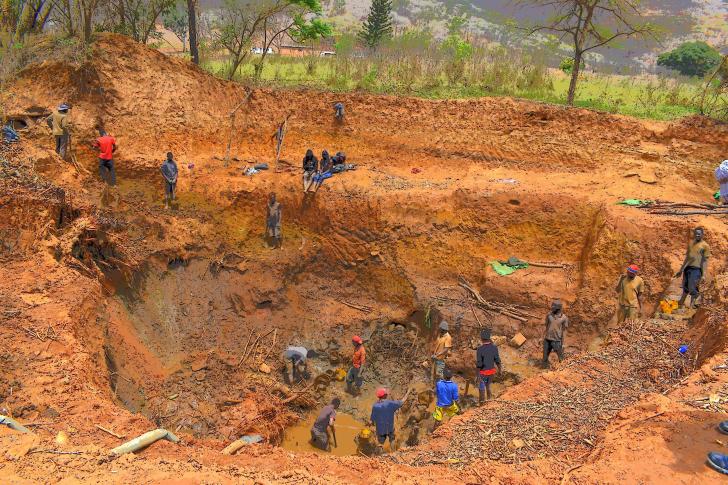News / National
Zanu-PF bigwigs, securocrats in illegal mining
06 Sep 2024 at 13:45hrs |
0 Views

Despite a government-imposed ban, riverbed mining continues in Manicaland, allegedly led by high-ranking Zanu PF officials and security forces, causing severe environmental damage.
James Mupfumi, director of the Centre for Research and Development (CRD), reported that mining activities, especially in Chimanimani and Odzi, have intensified since the ban. He claims that the operations are benefiting individuals rather than the government, with politically connected figures involved.
However, Tafirei Masuma, chairperson of the chrome sector in the Zimbabwe Miners Federation, denied that a military-affiliated company was involved in illegal riverbed mining.
He stated that the firm was instead rehabilitating damaged land and rivers in accordance with the Environmental Management Agency's (Ema) guidelines.
The riverbed mining ban, reissued after previous failures to enforce it, was aimed at curbing environmental destruction by mechanized operations, particularly by Chinese-run firms.
Despite the ban, advanced equipment continues to devastate rivers, including Odzi and Mutare, with no effective enforcement in place.
Civil society organizations, including Mupfumi and Farai Maguwu, director of the Centre for Natural Resource Governance (CNRG), argue that political elites and cartels are perpetuating the illegal mining.
They claim there is no political will to enforce the ban, as many senior politicians are benefiting from the environmental destruction.
Zanu PF's director of information, Farai Marapira, denied allegations that ruling party members are involved in illegal mining, insisting that Zanu PF adheres to the law.
Meanwhile, government officials claim they have not received reports of illegal activities, and the Zimbabwe National Army has requested further inquiries in writing.
The situation underscores the challenges of enforcing environmental laws in Zimbabwe, particularly when politically connected figures are implicated in illegal activities.
James Mupfumi, director of the Centre for Research and Development (CRD), reported that mining activities, especially in Chimanimani and Odzi, have intensified since the ban. He claims that the operations are benefiting individuals rather than the government, with politically connected figures involved.
However, Tafirei Masuma, chairperson of the chrome sector in the Zimbabwe Miners Federation, denied that a military-affiliated company was involved in illegal riverbed mining.
He stated that the firm was instead rehabilitating damaged land and rivers in accordance with the Environmental Management Agency's (Ema) guidelines.
The riverbed mining ban, reissued after previous failures to enforce it, was aimed at curbing environmental destruction by mechanized operations, particularly by Chinese-run firms.
Civil society organizations, including Mupfumi and Farai Maguwu, director of the Centre for Natural Resource Governance (CNRG), argue that political elites and cartels are perpetuating the illegal mining.
They claim there is no political will to enforce the ban, as many senior politicians are benefiting from the environmental destruction.
Zanu PF's director of information, Farai Marapira, denied allegations that ruling party members are involved in illegal mining, insisting that Zanu PF adheres to the law.
Meanwhile, government officials claim they have not received reports of illegal activities, and the Zimbabwe National Army has requested further inquiries in writing.
The situation underscores the challenges of enforcing environmental laws in Zimbabwe, particularly when politically connected figures are implicated in illegal activities.
Source - the independent
Join the discussion
Loading comments…

































